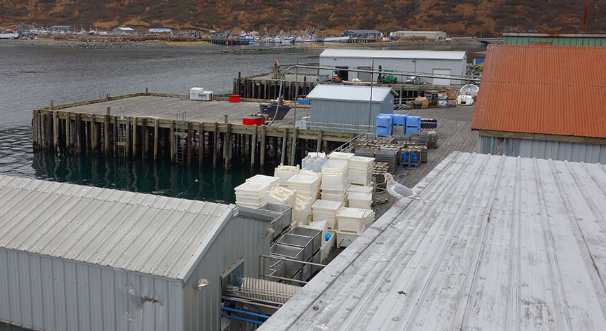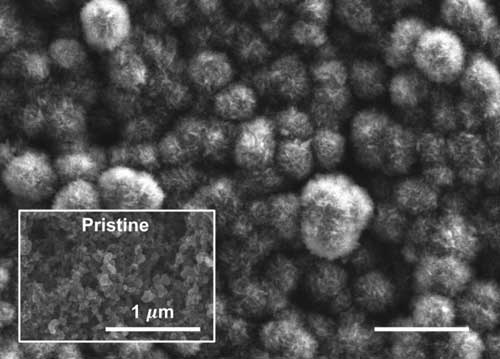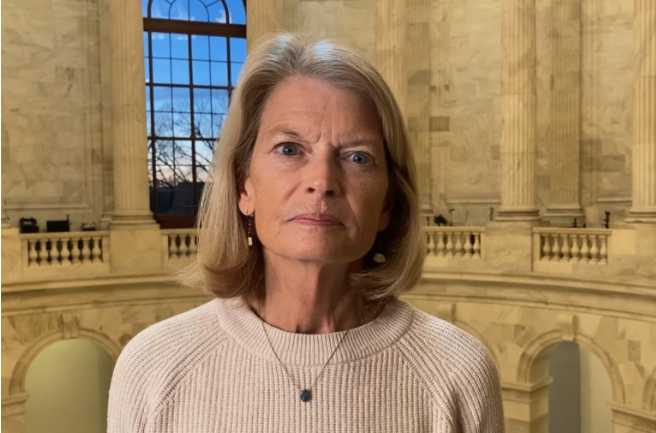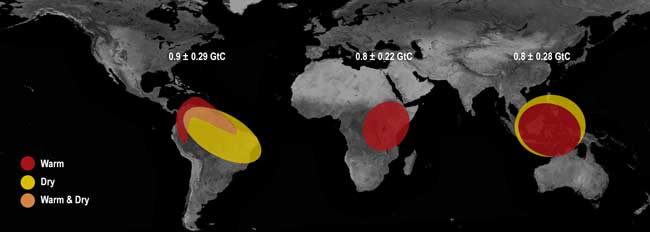
Washington, DC – U.S. Senators Lisa Murkowski (R-Alaska) and Michael Bennet (D-Colo.) introduced the Carbon Dioxide Removal Investment Act to establish a new production tax credit designed to jumpstart the United States’ carbon dioxide removal (CDR) industry. The tax credit would support innovative CDR approaches that are ready to be deployed today, while also creating pathways for those still in development.
“Alaska possesses unique characteristics that make it a perfect candidate to be a national leader in carbon dioxide removal,” said Murkowski. “This tax credit will help jumpstart critical projects in this burgeoning industry, helping Alaska realize enormous untapped economic potential.”
“Due to climate change, Coloradans are facing rising temperatures, increasingly destructive wildfires, and historic drought. In order to meet our climate goals, we need to significantly cut greenhouse gas emissions – and scale up technologies to capture and remove carbon dioxide in our atmosphere,” said Bennet. “The Carbon Dioxide Removal Investment Act puts American innovation at the heart of our fight against climate change.”
CDR is critical to meeting climate goals. According to the National Academies, by 2050, 10 billion tons of carbon dioxide will need to be removed from the atmosphere every year, with 1-2 billion in the U.S. alone. The Energy Futures Initiative (EFI) Foundation released a report this week and the Rhodium Group released a report earlier this year that both underscore the importance of CDR to meet climate goals and specifically recommend a tax credit as an important federal policy tool to scale up the industry.
“BPC Action applauds Sens. Bennet (D-CO) and Murkowski (R-AK) for introducing the Carbon Dioxide Removal Investment Act to help boost innovation and accelerate the adoption of carbon dioxide removal (CDR) technologies. Scaling CDR is vital to unlocking the full potential of these technologies to both decarbonize the economy and drive economic growth, and we urge Congress to move forward on this important legislation,” says Michele Stockwell, President, Bipartisan Policy Center (BPC) Action.
“It’s time to update the tax code to reflect the full spectrum of carbon removal tools in our toolbox,” said Giana Amador, Executive Director, Carbon Removal Alliance. “This tax credit for carbon removal will allow innovative American companies working to permanently remove carbon pollution from our atmosphere to access critical incentives that can power their work — in turn unlocking climate benefits, economic growth, and in-demand jobs across the country.”
“The National Wildlife Federation applauds Senators Bennet and Murkowski for introducing the Carbon Dioxide Removal Investment Act, which offers innovative and responsible pathways to encourage solutions that remove excess carbon dioxide from our atmosphere. This legislation encourages innovation, ensuring more technologies can benefit from federal support and contribute to stabilizing our climate for the sake of people and wildlife alike,” said Shannon Heyck-Williams, Associate Vice President of Climate and Energy, National Wildlife Federation.
“The Carbon Dioxide Removal Investment Act is an important policy lever that will help the U.S. further develop and deploy a diverse suite of carbon removal technologies – a necessary component of meeting our national and global climate goals alongside deep and rapid emissions reductions,” said Christina DeConcini, Director of Government Affairs, World Resources Institute. “Through technology-neutral support that doesn’t pick winners, this bill creates a level playing field that will advance innovations with the biggest climate impact while supporting new jobs and maintaining U.S. leadership in the carbon removal sector. This bill demonstrates the established bipartisan support for carbon removal, and we encourage other members of Congress to join Senators Bennet and Murkowski in advancing this policy.”
“We applaud Senators Murkowski and Bennet on their efforts to promote carbon dioxide removal innovation through the Carbon Dioxide Removal Investment Act. Technology-inclusive incentive structures will bolster U.S. competitiveness and support the development of new domestic technologies that align with American energy independence and security,” said Jeremy Harrell, CEO, ClearPath Action.
“Colorado is a national leader on clean air and protecting our state for future generations, including our recently released comprehensive state carbon management roadmap, and this legislation is another example of that. I appreciate Senator Bennet and Murkowski’s bipartisan leadership on this important issue, and for taking this step to remove carbon emissions,” said Colorado Governor Jared Polis.
“Colorado is moving rapidly to reduce carbon pollution and expand clean energy, but we know that carbon dioxide removal will also be needed to achieve our climate goals. While we have taken important steps at the state level to enable carbon removal, and are developing a comprehensive state carbon management roadmap, we know that federal policy support is essential. That is why we are so excited about this bipartisan legislation to create a new tax credit for carbon dioxide removal,” said Will Toor, Executive Director, Colorado Energy Office.
“Reaching a clean economy will require a swift transition to zero-carbon energy sources – but we also need to face the reality that many sectors are hard to decarbonize and we also aspire eventually to a negative carbon economy. We will need to take carbon out of the atmosphere and oceans at unprecedented scale through advances in carbon dioxide removal (CDR) methods,” said Ernest J. Moniz, former Secretary, U.S. Department of Energy, and founder and CEO, EFI Foundation. “A key element in CDR development will be a national policy that includes sustained tax credits for the widest range of CDR technologies in order to attract private sector investment in technological, natural and hybrid solutions.”
In September 2024, Bennet joined the Environmental and Energy Study Institute (EESI) and the World Resources Institute (WRI) for a conversation about opportunities to scale CDR to meet climate goals. In May, Bennet spoke with BPC Action about policy opportunities for CDR.
The text of the bill is available HERE. A section-by-section summary is available HERE. A one-page summary is available HERE.
[content id=”79272″]







